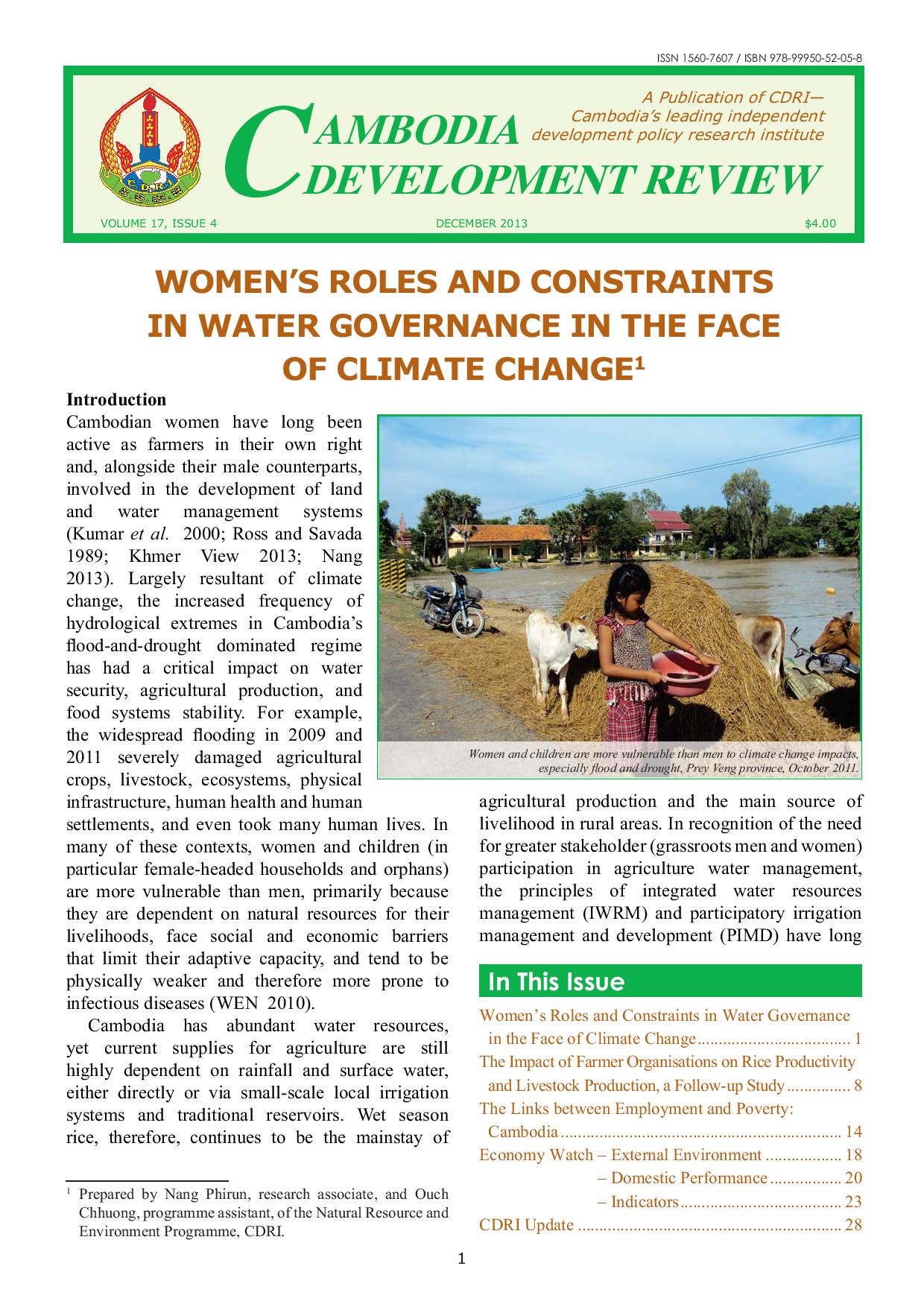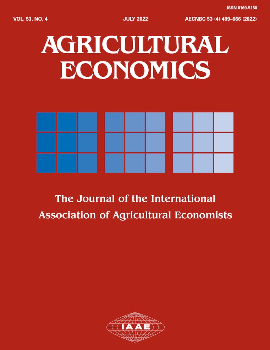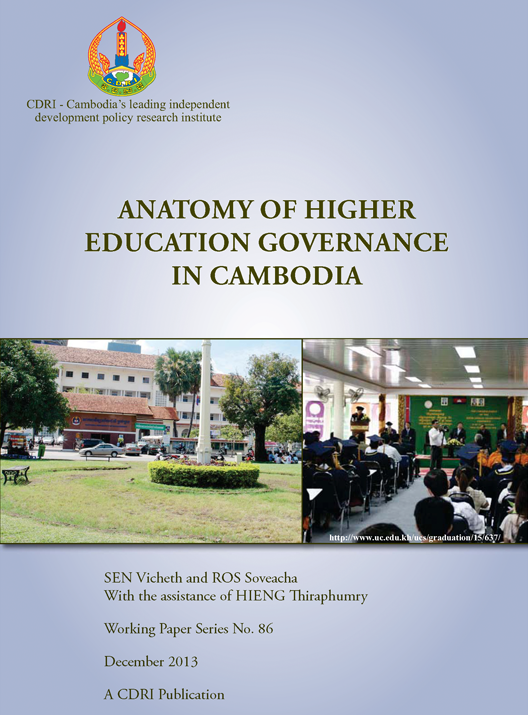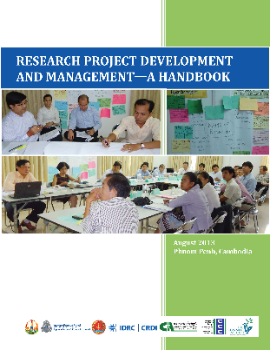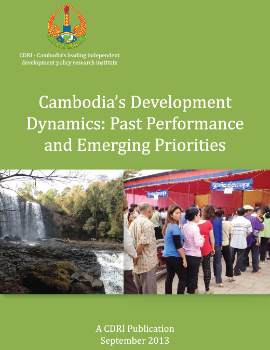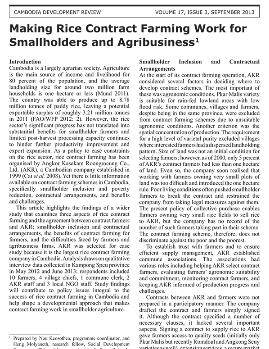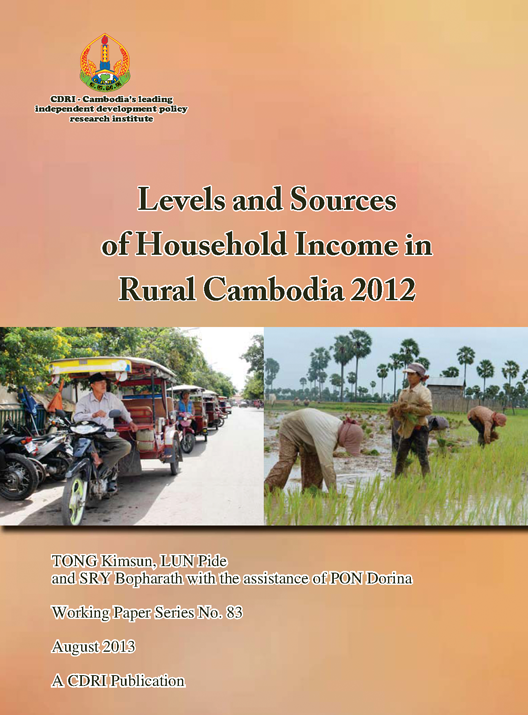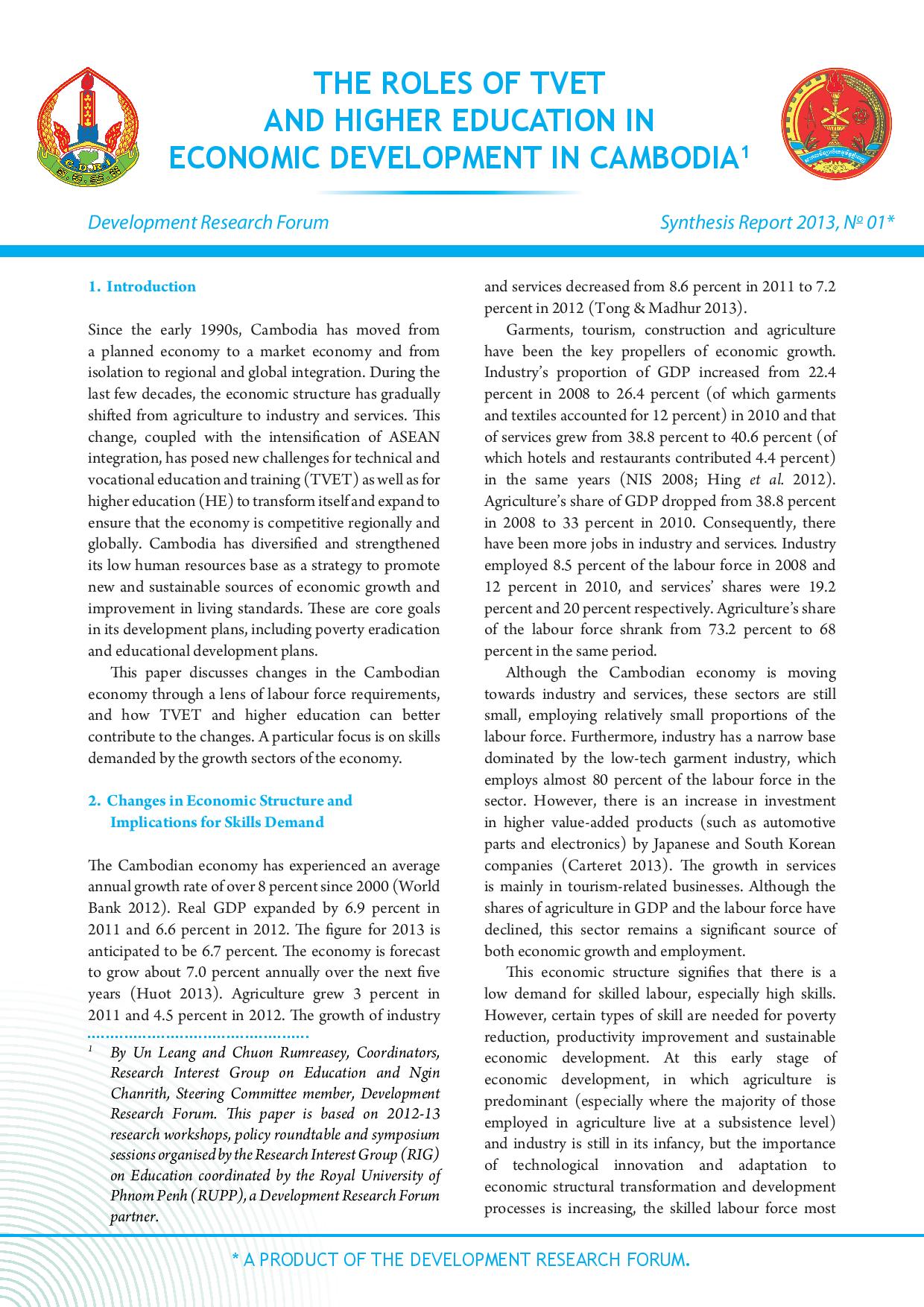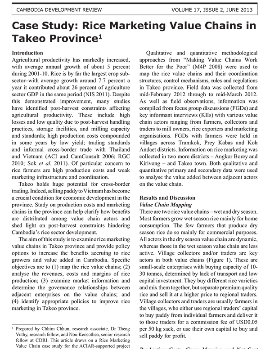ROS Bansok
2013
Irrigation water productivity in Cambodian rice systems
Knowledge of the marginal productivity of water is crucial for decisions about its allocation between uses, which is particularly important in the context of increasing competition for water. Using primary, plot-level panel data, this article estimates the marginal productivity of water from supplementary irrigation in lowland rice systems in Cambodia, taking into account farmer and plot heterogeneity as well as self-selection of supplementary irrigation. Our estimates indicate a range of elasticities for rice output with respect to water inputs of […]
SEN Vichet
2013
Anatomy of Higher Education Governance in Cambodia
Higher education plays a fundamental role in enhancing the intellectual capacity essential to creative leadership in all fields of national activity and in providing a skilled workforce able to respond to changing labour market demands. All citizens, and particularly the poor, need the opportunity and the skills to participate productively in the labour market and other economic activities.Improving the quality of higher education means providing the skills and capacities to think logically and critically for a society’s most talented citizens, including the disadvantaged, so allowing them […]
REBECCA Catalla
2013
Research Project Development and Management – A handbook
PrefaceThe reputation of CDRI, Cambodia’s leading independent development policy research institute, stands or falls on the quality and relevance of its research—its design, implementation, analysis, presentation and communication. I am pleased to introduce this new publication Research Project Development and Management—A Handbook, which has been developed as part of our ongoing commitment to building the knowledge, skills and professionalism of Cambodian researchers in undertaking policy relevant research on development issues. We are fortunate at CDRI that we attract some of […]
OU Sivhuoch
2013
Sub-National Civil Society in Cambodia: A Gramscian Perspective
Several authors (particularly Laundau 2008; Henke 2011) label Cambodian national civil society as a sphere that is neither apolitical nor autonomous, but influenced or co-opted by and blurred with the state. They posit that a Gramscian perspective is relevant to interpreting civil society in the country. This article suggests that the application of a Gramscian perspective also proves relevant to sub-national civil society in Cambodia. The sub-national state has recently politicised and co-opted village development committees and imposed restrictions on […]
CDRI
2013
Cambodia’s Development Dynamics: Past Performance and Emerging Priorities
CDRI releases its new publication, Cambodia’s Development Dynamics: Past Performance and Emerging Priorities. This study will be useful to a wide audience interested in Cambodia’s socioeconomic and political development – policymakers, the research community, development partners, the private sector, and non-government organisations. The Report analyses Cambodia’s development dynamism over the last two decades and identifies emerging development priorities for the next two. It examines Cambodia’s past performance, and current and future challenges in the economic, social, environmental and political spheres. It […]
TIN Ponlok, ROS Bansok, Thanakvaro De Lopez, Catherine Chiang, NANG Phirun, CHHIM Chhun
2013
Cambodian Agriculture: Adaptation to Climate Change Impact
Cambodia has been identified as one of the most vulnerable countries to climate change, given the predicted changes in temperature and precipitation, the share of labor in agriculture, and the country’s low adaptive capacity due to widespread poverty. In this study, we use climate data from four general circulation models (GCMs) to evaluate the impact of climate change on agriculture in Cambodia by 2050. We used the Decision Support System for Agrotechnology Transfer crop modeling software to evaluate crop yields, […]
LUN Pide, SRY Bopharath, Pon Dorina
2013
Levels and Sources of Household Income in Rural Cambodia 2012
Households in Cambodia derive their income mainly from non-farm self-employment, salaries and wages, agricultural crops and other activities. On average, non-farm self-employment income amounts to 29 percent of total income, but its share was largest during the oil and food price increases and the global financial crisis that occurred in 2008 and 2009. However, household participation rates in non-farm self-employment during the crisis were exactly the same as in 2007 and two percentage points lower than in 2010. This suggests […]
CHUON Rumreasey
2013
The Roles of TVET and Higher Education in Economic Development in Cambodia
During the last decades, Cambodia’s economic structure has gradually shifted from agriculture to industry and services. This change, coupled with deepened ASEAN integration, has posed new challenges for transforming and technical and vocational education and training (TVET) and higher education to ensure that the economy is competitive regionally and globally. This paper discusses the rapidly changing Cambodian economy through the lens of labour force requirements to identify how TVET and higher education can better contribute to supporting these changes. A […]

